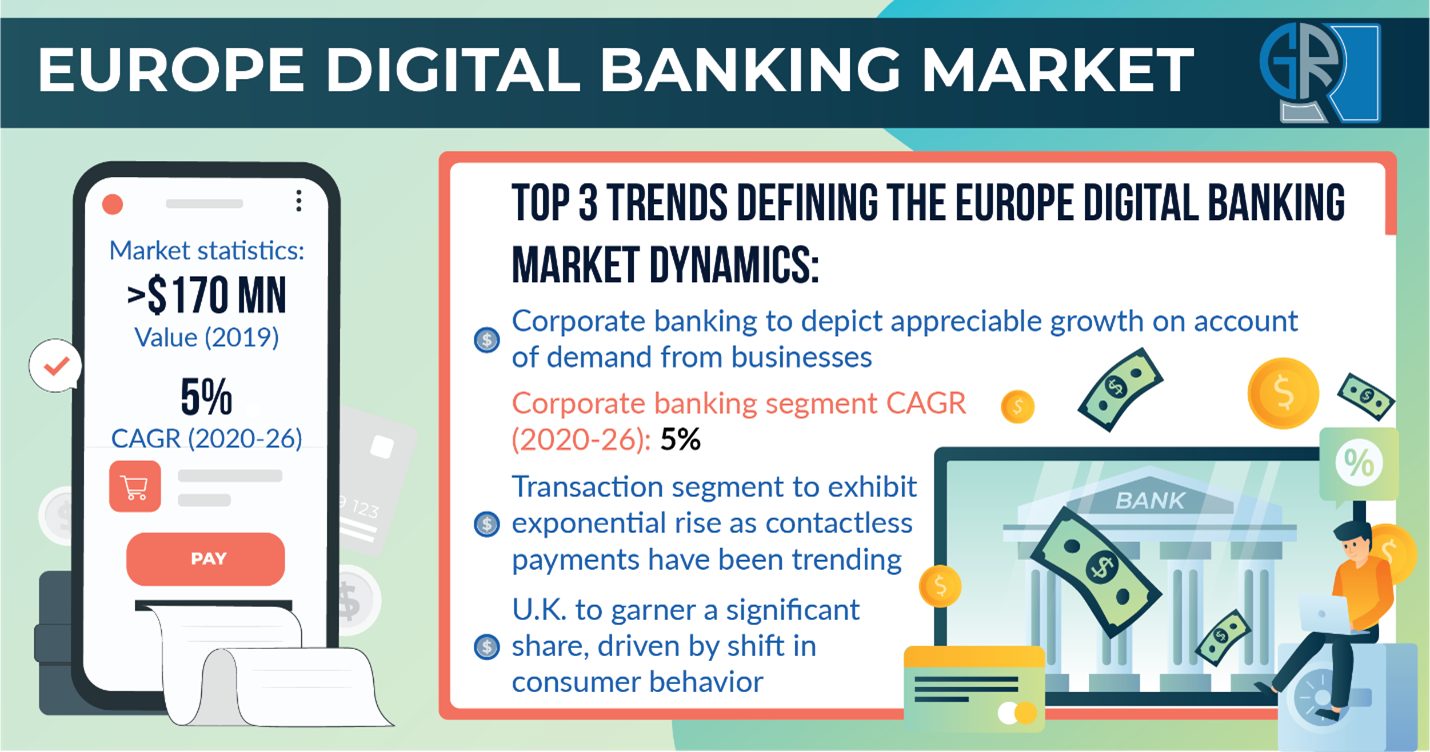Europe digital banking market is seeing enormous upheaval, with online deposits, smartphone applications, and e-bill payments becoming mainstream. Traditional banking institutions have proven outdated in the face of pandemic-led mobility restrictions.
Modern-day consumers demand efficiency, accessibility, and security when it comes to financial services. The digital banking platform enables the automated delivery of traditional and new banking goods and services to end consumers through interactive communication channels.
Furthermore, many banks and financial institutions are providing digital banking channels to expand their client base and provide comfort to their customers throughout the world. The increase in the number of Internet users, as well as the shift from traditional banking to online banking, are major drivers fueling the industry growth in Europe.

The impact of COVID-19 and its variants on Europe Digital Banking Market Outlook
The current trend of digitalization has gained traction with COVID-19, as individuals throughout the continent have had to adjust to physical constraints. This resulted in a rapid increase in online activity and widespread use of digital banking services as a safe, quick, and simple method to access cash and manage personal finances while on the go.
As the pandemic progresses and several nations observe a new wave, the way Europeans communicate and transact has fundamentally marked a switch to digital platforms, with video conferencing and online commerce flourishing.
Mastercard's Evolution of Banking study, which examines digital banking trends across 12 European markets, revealed a greater appetite for online solutions, with 62% of all respondents claiming that they would be happy to switch from physical banking to digital platforms in 2020 – a 13% rise from only three years prior.
Digital currencies gain momentum across Europe
This increase in technology use has accelerated the progress achieved in open banking, following the implementation of the UK's Open Banking Directive and the EU's Payment Services Directive 2 legislation. Several banks in the European market have launched numerous measures to accelerate the expansion of the fintech ecosystem.
These are some remarkable developments, as they manifest an openness to adoption of new technological infrastructures by connecting shops and customers to speedier payment solutions. Contour, a blockchain trade finance platform funded by Citi, HSBC, and Standard Chartered, was introduced by HSBC in October 2020.
Similarly, JP Morgan is establishing a blockchain network on which they are now testing its digital currency, JPM coin, for the first time, via a significant tech customer in order to transfer payments around the world. This demonstrates how blockchain, along with notions like digital treasuries (for corporations) and digital wallets, has become a key weapon in any digital banking armory for retail.
It is crucial to mention the German FinTech sector while discussing the trends in Europe's digital banking industry. In response to pandemic concerns, according to Germany Trade and Invest, 43% of Germans have switched to cashless payment methods. Artificial intelligence and blockchain technologies are becoming increasingly popular in this industry. As a result, it is also an appealing place for international entrepreneurs looking to tap the potential of the European market.


